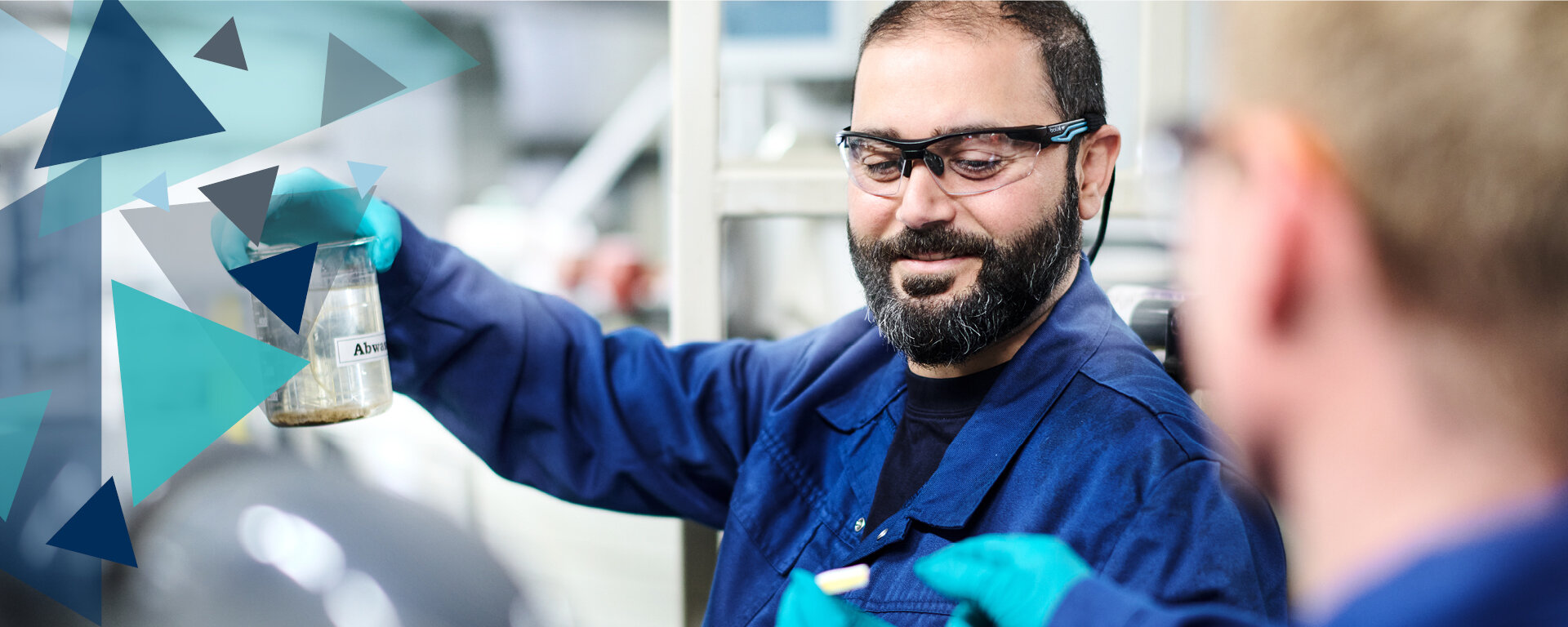We also have more than chemical-physical treatment facilities with specialised technology that is geared to the specific needs of our customers and the main focus of regional industry. Contact us now
Chemical-physical treatment of hazardous waste
In many cases, hazardous waste and wastewater are treated using a combination of both chemical and physical methods. REMONDIS Industrie Service operates an extensive network of state-of-the-art facilities around Germany, all of which are equipped to process virtually all liquid waste that does not need to be treated thermally.
Physical waste treatment
There are a number of physical methods for treating waste, usually together with chemical methods. The main ones are as follows:
Filtering
Pollutants are removed from contaminated wastewater through activated carbon or resin adsorption
Gravity
Materials are separated from solutions through either sedimentation (i.e. sinking to the bottom of the liquid) or flotation (i.e. floating to the surface)
Phase-change systems
Volatile substances are stripped from liquid waste using air and steam, and evaporation techniques are used to treat metal plating, coolants and paint solvents
Chemical waste treatment
Chemical treatment of hazardous waste involves a chemical process that transforms it into less harmful substances, which in turn can be extracted from a solution. The main ones are as follows:
Reduction/oxidation (redox): This involves using reducing or oxidising agents to convert hazardous contaminants to less toxic compounds
Ion exchange reaction: Here, the charges of atoms (or groups of atoms) are exchanged between a waste material and another chemical substance, allowing them to bond together in a less harmful form
Chemical precipitation: A chemical reaction is used to form separable particulate matter in solutions, either by rendering the contaminant itself insoluble or by changing the properties of the solution to diminish its solubility
Neutralisation: By adding acids to corrosive alkaline solutions and alkaline to corrosive acid solutions, it is possible to alter their pH value to meet the requirements for further treatment

Chemical-physical treatment of organic wastewater
REMONDIS specialises in the physical and chemical treatment of organically contaminated water, such as oil and water mixtures and emulsions. The methods and technology listed below allow us to separate the organic components – e. g. oil and water – and process them into new oil or a cost-effective alternative to traditional fossil fuels.
To find out more about our expertise in treating organic and inorganic wastewater, please e-mail us
Chemical cleavage unit
Brine evaporator
Low-temperature evaporator or vacuum evaporator
Flotation plants
Two/three-phase separator (decanter/tricanter, centrifuges)
Thermal processes for concentrating oils
Sludge dewatering with chamber filter presses

Samples of wastewater are analysed to determine the best way to treat it
Chemical-physical treatment of inorganic wastewater
Before deciding on the best way to treat each type of inorganic wastewater, we conduct extensive tests in our laboratory. In most cases, pollutant components – for instance copper, nickel and other heavy metals – are transformed into insoluble compounds and either recycled or disposed of in solid form. The remaining wastewater is then analysed, further treated if necessary and, once it has been purified to the required standard, is returned to the water cycle via the sewerage system.
We use the following treatment processes for inorganic wastewater:
Neutralisation
Flocculation (larger clusters form and can be removed from the water)
Oxidation (using oxidising agents to convert contaminants to less toxic compounds)
Concentration through evaporation (e. g. saline liquids)
Detoxification (removal of toxic pollutants, e. g. cyanide)
Precipitation (changing materials dissolved in water into solid particles)
Filtration (e. g. using activated carbon)

Once purified, the water is ready to be returned to the water cycle
To find out more about our expertise in treating organic and inorganic wastewater, please e-mail us



